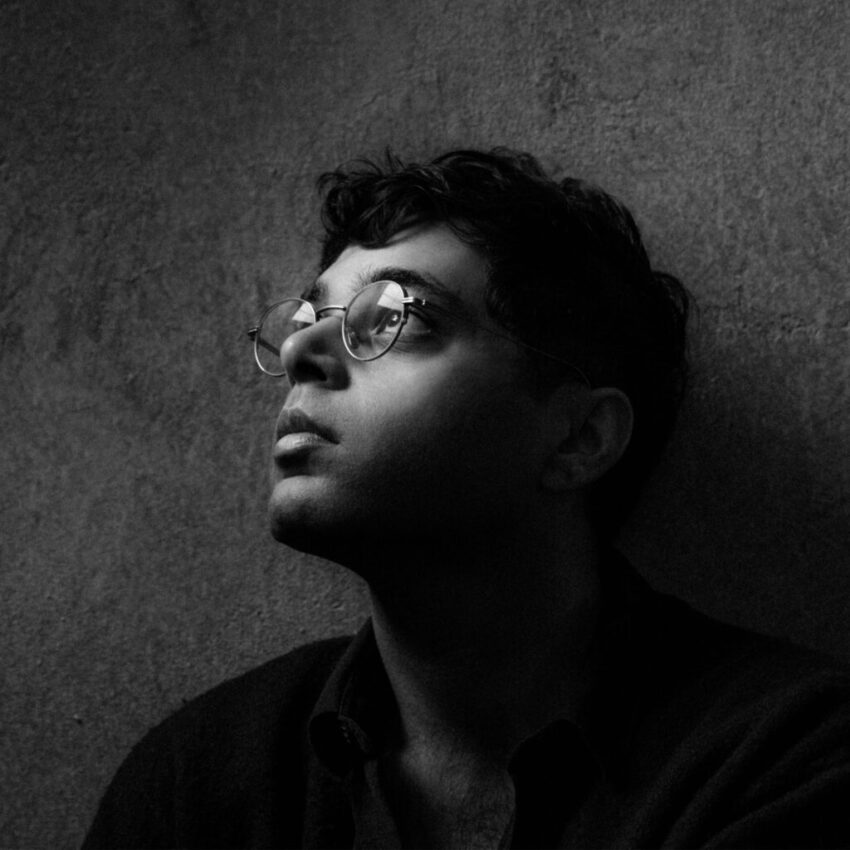
Talking about “Environments” – a broad, beautiful new album from the jazz-adjacent guitarist Rafiq Bhatia – is like talking about the weather. Squint your ears at the tech Bhatia uses to make his sunshine and you’re talking meteorology. Surrender to his music’s big-sky grandeur and it’s more like metaphysics. If you’re drawn to the uncomplicated verisimilitude in his work – the song with “rain” in its title sounds like rain – you’re making chitchat at the bus stop. We needed this, didn’t we?
And like the weather, it just happened. “This music is more spontaneously composed than anything I’ve ever released,” Bhatia says of the panoramic, first-take improvisations he created with percussionist Ian Chang and trumpeter Riley Mulherkar on “Environments” – performances that feel as distinct as the players involved, yet as faceless as the forces of nature that inspired them. “This thing of trying to evoke or conjure place, it kind of gives you no choice,” Bhatia says over the phone from New York. “You’re not trying to make someone think about who you are. You’re trying to make something about where they are.”
For years, Bhatia has been inviting listeners to come to him. On previous albums, he funneled his jazz fluency through layers of production software, resulting in recordings that he describes as “sort of ice sculptural, ship in a bottle types of creations.” Now, drawn back into the gravity of the improvisational moment, Bhatia says, “I’m basically merging the two practices,” improvising on his guitar and sending the signal through his computer. “I can grab fragments and sample myself in real time,” he says. “So I’m working with sound in that sculptural way, but I can do it with sounds that I’ve just generated.”
Beneath his fingertips, this new method feels intuitive. Inside Bhatia’s mind, against the tumult of America’s current sociopolitical mood swings, it also feels necessary. “It felt like I was painting a sanctuary around myself in this really insane moment in time, in the world,” Bhatia says. “Here in New York, in this cinder-block room that I’m in, I’m casting these shrouds around myself. It felt more visual than anything I’d done before. … And I would make a distinction between an escape and a sanctuary.”
That’s a more thoughtful way of saying that Bhatia isn’t all that interested in soundscaping your next day spa visit. “So much music that deals with nature is kind of emphasizing the use case of creating a feeling of calm or consonance in someone’s life,” he says. “But when I say ‘therapeutic,’ I mean deep tissue. This is not intended to be some kind of gentle cleanse. We’re interested in the full spectrum of what the natural world – and our dream of the natural world – can be.”
On one side of that spectrum, there’s “Aviary I Sunrise,” a slow-motion crescendo that reveals its majesty as unflinchingly as the dawn. On the other end, there’s “Volcano,” an intensifying murmur of hot liquid heft. “There’s no better metaphor for sublimation and transcendence than the volcano,” Bhatia says. “Does it make you feel safe or calm? Maybe not. But is it therapeutic? I think so.”
Profoundly, too. This volcano doesn’t behave like one in a cartoon. There’s no final kablooey, no conclusive moment of explosive catharsis. Instead, Mulherkar’s trumpet leaks lethal heat, Cheng’s drums become molten splashes, Bhatia’s guitar is abstracted into something as heavy and invisible as a threat. To listen attentively, with vulnerability and with patience, is to better contend with the interminability of menace in any form. We needed this, didn’t we?



